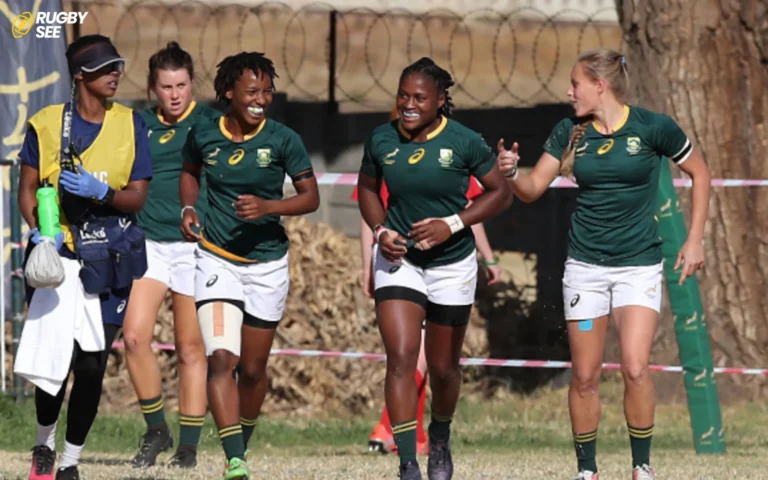In the vast and dynamic world of sports, the origins and evolution of games are often as fascinating as the games themselves. Among the frequently asked questions is whether rugby, with its distinctive body and unique rules, originated from football. This article from Rugbysee looks at the historical links between these two popular sports and sheds light on their common roots and how they branched off into the games we know and love today.
A Common Ancestry
To understand the relationship between rugby and soccer, we must travel back to England in the 19th century. During this time, football was a loosely organized game played by many schools, with rules that varied significantly from one institution to another. The common thread among these variations was the act of kicking a ball towards a goal. However, the manner in which the ball could be moved, the size of the teams, and even the shape and size of the ball were all subject to local customs and preferences.
The Pivotal Moment: Rugby’s Birth
The pivotal moment that led to the distinction between rugby and soccer is often traced back to 1823, when, according to popular legend, William Webb Ellis, a student at Rugby School, picked up the ball during a football match and ran with it. This act of carrying the ball and running towards the goal was contrary to the standard practice of the time and is cited as the inception of rugby football.
It’s worth noting that historical evidence for this story is anecdotal, and the true origins of rugby are likely more nuanced. Nonetheless, the tale of Webb Ellis’s bold move has become a foundational myth of rugby, celebrated for encapsulating the spirit and distinctiveness of the game.

The Formal Split: Codifying the Rules
The formal divergence of soccer and rugby can be pinpointed to the formation of the Football Association (FA) in 1863 in England. The goal was to unify the various rules of football into a single set of standardized regulations. During a series of meetings, a fundamental disagreement arose over whether carrying the ball and “hacking” (kicking opponents in the shins) should be allowed.
The division was stark: those who supported these practices formed the Rugby Football Union in 1871, codifying the rules of rugby football. Meanwhile, the FA banned ball carrying and hacking, laying the groundwork for modern association football, or soccer as it is known in some countries and if you want to know what country Rugby is from read What Country is Rugby From.
The Evolution of Two Distinct Games
From these early schisms, soccer and rugby embarked on separate evolutionary paths. Soccer became a game focused on kicking the ball, strategic positioning, and goal-scoring via teamwork and footwork. Rugby, on the other hand, embraced the physicality of ball carrying, tackling, and scoring through both tries (grounding the ball in the opponent’s goal area) and goals.
The Global Spread and Cultural Impact
Both sports rapidly gained popularity, spreading throughout the British Empire and beyond. Rugby and soccer each developed into a global phenomenon, with cultures and communities around the world adopting and adapting the games to their local contexts. Today, the Rugby World Cup and FIFA World Cup are among the most watched sporting events globally, each celebrating the rich heritage and exciting future of their respective sports.
Common Misconceptions and Clarifications
- Did Rugby Evolve from Soccer? While rugby and soccer share common roots in the early forms of football played in England, rugby did not evolve from soccer as it is known today. Instead, both sports diverged from a common ancestor, following the codification of their rules in the 19th century.
- Impact on Other Sports: The split between rugby and soccer also influenced the development of other sports, including American football, which has its roots in rugby.

The Influence on Sporting Culture and Identity
While rugby and soccer took different paths, their impact on sporting culture and national identity has been profound. Each sport reflects and shapes the identity of its followers and nations. For instance, rugby is closely associated with the culture and national identity in countries like New Zealand, Wales, and Fiji, where it’s more than just a sport—it’s a unifying force. Similarly, soccer holds a special place in the hearts of people from Brazil, England, and Italy, symbolizing passion, artistry, and national pride.
The Role of Sports in Society
Both rugby and soccer play significant roles in promoting values such as teamwork, respect, and discipline. They provide a framework for social interaction, community building, and international diplomacy. The sports offer platforms for addressing social issues, including racism, inequality, and integration, demonstrating the power of sports as a force for positive change in society and if you want to know about that when Rugby became professional read When Did Rugby League Become Professional.
Technological Advancements and Future Directions
The evolution of rugby and soccer continues, driven by technological advancements that enhance gameplay, officiating, and fan engagement. Innovations such as video assistant referees (VAR) in soccer and television match officials (TMO) in rugby have improved decision-making accuracy. Meanwhile, wearable technology and data analytics are revolutionizing training methods and player performance analysis, shaping the future of both sports.

Engaging the Next Generation
As rugby and soccer evolve, both sports face the challenge and opportunity of engaging the next generation of fans and players. Initiatives aimed at making sports more accessible, promoting grassroots participation, and leveraging digital platforms to connect with younger audiences are crucial for the sustained growth and popularity of rugby and soccer.
The Unifying Power of World Cups
The FIFA World Cup and the Rugby World Cup stand as testament to the unifying power of sports. These tournaments bring nations together, fostering a spirit of camaraderie and global unity. They highlight the diversity of the sporting world, celebrating both the differences and similarities between cultures through the shared love of the game.
Legacy and Impact
The legacies of these world cups go beyond the tournaments themselves, leaving lasting impacts on the host countries and participating nations. From infrastructure development to inspiring the next generation of athletes, the world cups of rugby and soccer contribute to the social and economic development of host countries, creating memories and legacies that transcend the sports.
The question of whether rugby came from soccer is rooted in the complex and intertwined history of early football games. While it’s clear that rugby and soccer diverged from common origins, each sport has developed its unique identity, rules, and global following. The legacy of their shared ancestry continues to enrich the world of sports, offering diverse ways for players and fans to engage with the team sports they love.
By exploring the historical connections and celebrating the distinct paths rugby and soccer have taken, we gain a deeper appreciation for the rich tapestry of sports history and the enduring appeal of these games. As we look to the future, the evolution of rugby and soccer remains a testament to the dynamic nature of sports, reflecting changes in society, technology, and cultural preferences.










